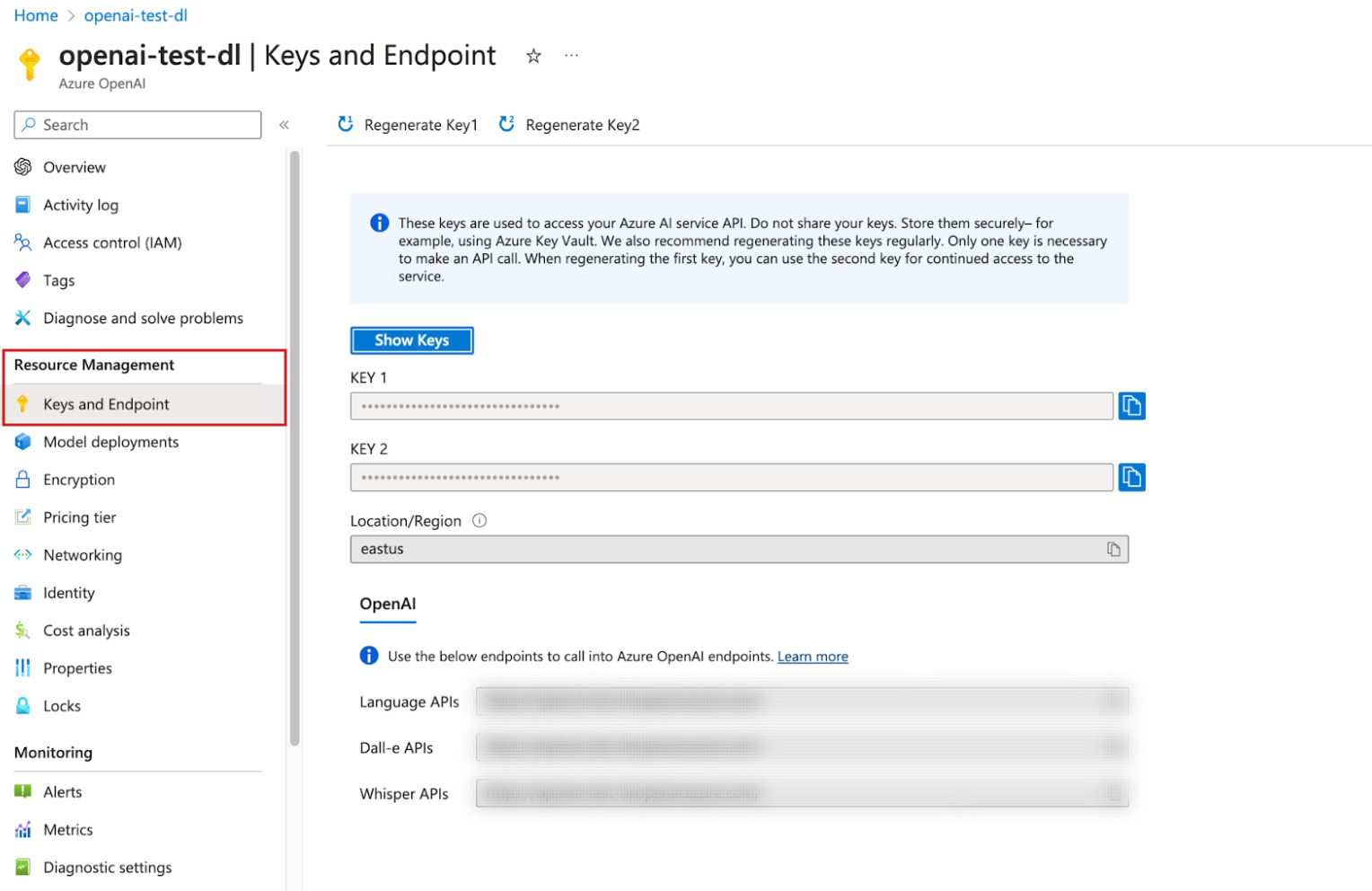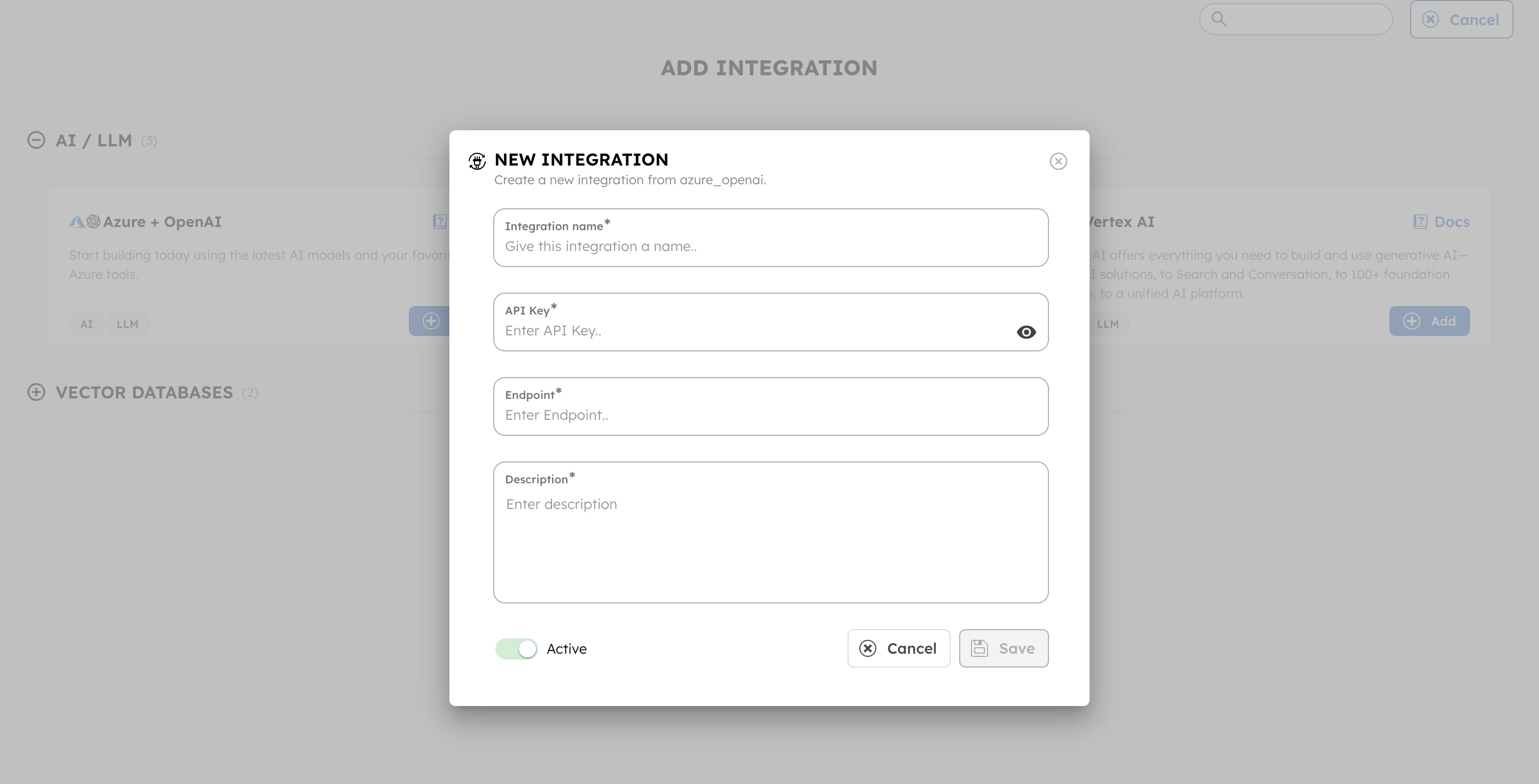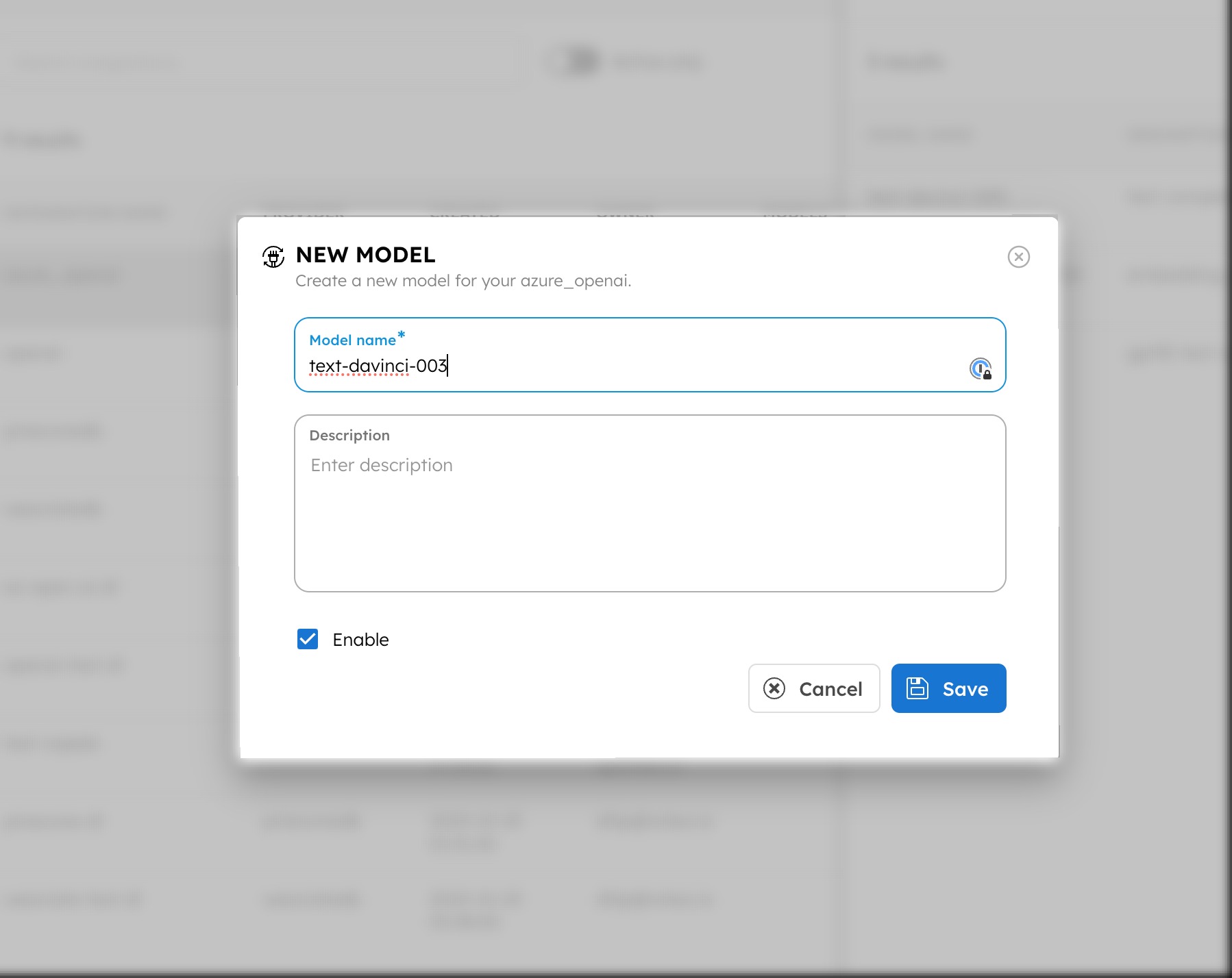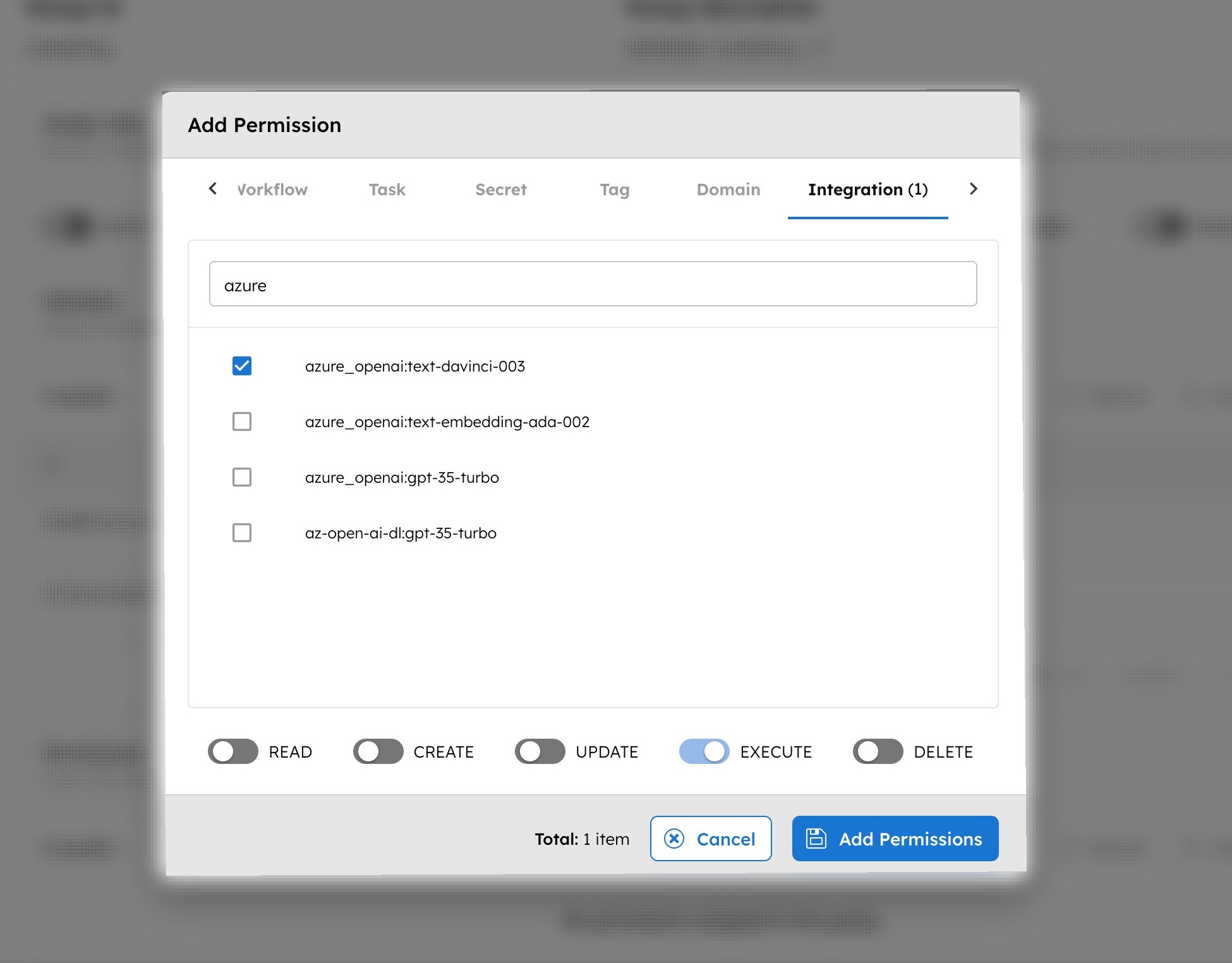Azure OpenAI Integration with Orkes Conductor
To use system AI tasks in Orkes Conductor, you must integrate your Conductor cluster with the necessary AI/LLM providers. This guide explains how to integrate Azure OpenAI with Orkes Conductor. Here’s an overview:
- Get the required credentials from Azure OpenAI.
- Deploy models in the Azure portal.
- Configure a new Azure OpenAI integration in Orkes Conductor.
- Add models to the integration.
- Set access limits to the AI model to govern which applications or groups can use it.
Ensure Azure OpenAI access is enabled for your Azure subscription before proceeding.
Step 1: Get the Azure OpenAI credentials
To integrate Azure OpenAI with Orkes Conductor, retrieve the API key and endpoint from the Azure portal.
To get the API key and endpoint:
- Sign in to the Azure portal.
- In Azure services, select Azure OpenAI.
- Create a new resource or open an existing one.
- Go to Resource Management > Keys and Endpoint in the left navigation menu.

- Copy KEY 1 or KEY 2 as the API key.
- Copy the endpoint.
Step 2: Deploy models in the Azure portal
Before using a model in Orkes Conductor, you must deploy it in your Azure portal.
Azure OpenAI has different models, each designed for specific use cases. Choose the model that best fits your use case.
To deploy a model:
- Follow the Azure OpenAI documentation to deploy the desired model in the Azure portal.
- When deploying a model, you are required to assign a deployment name. This name serves as a unique identifier for the deployed model and is required when referencing the model in Orkes Conductor integration.
Ensure the deployment is successful.
Step 3: Add an integration for Azure OpenAI
After obtaining the credentials, add an Azure OpenAI integration to your Conductor cluster.
To create an Azure OpenAI integration:
- Go to Integrations from the left navigation menu on your Conductor cluster.
- Select + New integration.
- In the AI/LLM section, choose Azure + OpenAI.
- Select + Add and enter the following parameters:
| Parameters | Description |
|---|---|
| Integration name | A name for the integration. |
| API Key | The API key copied previously from the Azure portal. |
| Endpoint | The endpoint copied previously from the Azure portal. |
| Description | A description of the integration. |

- (Optional) Toggle the Active button off if you don’t want to activate the integration instantly.
- Select Save.
Step 4: Add Azure OpenAI models
Once you’ve integrated Azure OpenAI, the next step is to add specific models.
To add a model to the Azure OpenAI integration:
- Go to Integrations and select the + button next to the integration created.

- Select + New model.
- Enter the Model name, which is the deployment name used in the Azure portal. For example, if you deployed gpt-35-turbo with the deployment name mySummarizerModel, enter mySummarizerModel here, not the base model name like gpt-35-turbo.

- Provide a Description.
- (Optional) Toggle the Active button off if you don’t want to activate the model instantly.
- Select Save.
This saves the model for future use in AI tasks within Orkes Conductor.
Step 5: Set access limits to integration
Once the integration is configured, set access controls to manage which applications or groups can use the models.
To provide access to an application or group:
- Go to Access Control > Applications or Groups from the left navigation menu on your Conductor cluster.
- Create a new group/application or select an existing one.
- In the Permissions section, select + Add Permission.
- In the Integration tab, select the required AI models and toggle the necessary permissions.
- Select Add Permissions.

The group or application can now access the AI model according to the configured permissions.
With the integration in place, you can now create workflows using AI/LLM tasks.